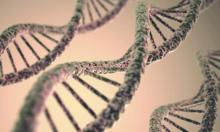Adoption of the 21-gene recurrence score (RS) assay does not appear to have decreased chemotherapy use overall among Medicare beneficiaries diagnosed with breast cancer, investigators reported online in JAMA Oncology. However, use of the assay was associated with decreased chemotherapy use in high-risk patients and increased chemotherapy use in low-risk patients in the retrospective study.
“Contrary to our hypothesis, we did not observe a change in chemotherapy use in the overall study population after the adoption of the RS assay between 2005 and 2009 or a general association between receipt of chemotherapy and use of the assay in multivariable analyses or HRR [hospital referral region]–level analyses,” Dr. Michaela Dinan of the Duke Clinical Research Institute and her associates wrote (JAMA Oncol. doi: 10.1001/jamaoncol.2015.2722).
There was, however, an interaction between use of the Oncotype DX recurrence score (RS) assay and National Comprehensive Cancer Network (NCCN) risk category.
RS use was associated with lower chemotherapy use in women with high-risk disease (odds ratio, 0.34; 99% confidence interval, 0.20-0.57) and higher chemotherapy use in those with low-risk disease (OR, 4.46; 99% CI, 3.15-6.31).
NCCN guidelines recommend considering chemotherapy in estrogen receptor (ER)-positive, node-negative breast cancer for all but the smallest tumors.
The 21-gene Oncotype DX assay was one of the first gene expression profile tests to reach the market, and studies have suggested its use could save money by guiding allocation of chemotherapy to patients most likely to benefit.
An earlier multicenter NCCN database analysis reported an association between the progressive rise in RS testing and an overall decline in adjuvant chemotherapy in hormone-receptive breast cancers diagnosed between 2006 and 2008.
The current study took a wider look at use of the RS assay and chemotherapy using a nationally representative sample of 44,044 women, aged 65 years and older, diagnosed with early-stage, ER-positive breast cancer between 2005 and 2009 in the SEER (Surveillance, Epidemiology, and End Results) database linked with Medicare claims. Of these, 24% had low-risk, 51.3% intermediate-risk, and 24.6% high-risk disease based on NCCN criteria. Roughly a quarter were node positive.
Use of the RS assay was higher among patients 70 years or younger, patients with fewer comorbid conditions, and patients with T1c tumors, node-negative disease, and intermediate-risk disease, Dr. Dinan and associates reported.
In all, 14.3% of patients overall and 26.5% of patients 70 years or younger received chemotherapy within 12 months of diagnosis, “which supports a significant influence of age on chemotherapy use,” they said.
“Our data suggest that use of the RS assay may have decreased chemotherapy use in general practice among younger patients with high-risk disease in whom receipt of chemotherapy would have otherwise been likely but that it was associated with greater chemotherapy use in patients with low-risk disease. The impact of the RS assay on chemotherapy use is likely population dependent and is influenced by the population’s pretest likelihood of undergoing chemotherapy,” they concluded.
The authors acknowledge that the study had limitations as only RS assays paid for by Medicare were analyzed, HER2 status was unavailable, and patients in the SEER registry are more likely to be nonwhite and live in high-poverty and urban areas, which may affect generalizability.
The study was sponsored by a grant from the Agency for Healthcare Research and Quality. The authors reported having no conflicts of interests. Dr. Kurian and Dr. Friese reported receiving funding from a National Cancer Institute grant to the University of Michigan.
On Twitter @pwendl


